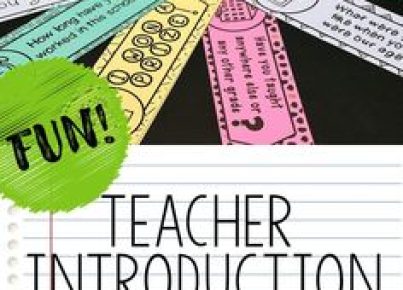Introduction:
Tax season can be both a time of anxiety and opportunity for teachers. While filing taxes requires attention to detail and can be time-consuming, teachers may be eligible for certain tax credits and deductions. It’s essential to know what benefits are available to help lessen the financial burden of being an educator. This article will cover some of the most important tax credits and deductions that teachers should know about.
1. Educator Expenses Deduction:
The Educator Expenses Deduction allows eligible educators to deduct up to $250 of unreimbursed classroom-related expenses. This includes books, supplies, computer equipment, and other materials used in the classroom. If both spouses are educators filing jointly, the maximum deduction allowed is $500. To qualify, you must work at least 900 hours in a school year as a teacher, instructor, counselor, principal or aide in a K-12 school.
2. Lifetime Learning Credit (LLC):
The Lifetime Learning Credit (LLC) allows for a credit of up to $2,000 per tax return for qualified tuition and related expenses for yourself, your spouse, or your dependent. This credit doesn’t require the student to pursue a degree or certificate program but must be enrolled at an eligible educational institution. While this credit doesn’t specifically benefit just teachers, it can come in handy if you’re taking professional development courses or working towards an advanced degree.
3. American Opportunity Tax Credit (AOTC):
For teachers pursuing higher education or additional certifications, the American Opportunity Tax Credit (AOTC) offers substantial benefits. Eligible taxpayers can claim up to $2,500 per student for qualified education expenses during the first four years of post-secondary education at an accredited institution. The AOTC is partially refundable; taxpayers may receive up to 40% ($1,000) as a refund if the credit reduces tax liability to zero.
4. Student Loan Interest Deduction:
Education professionals with outstanding student loans may be eligible for the student loan interest deduction, which allows for a deduction of up to $2,500 on interest paid on qualified student loans. Eligibility and deductibility depend on the taxpayer’s modified adjusted gross income (MAGI).
5. Classroom Improvement Deductions:
For teachers who spend their own money on classroom improvements, keep track of those expenses as they may qualify for additional deductions applicable to home office or business expenses. Be sure to consult with a tax professional about the specific requirements and eligibility.
Conclusion:
Filing taxes doesn’t have to be overly challenging for educators. By taking advantage of available tax credits and deductions explicitly designed for teachers, you can help alleviate some financial burdens while continuing your vital work in education. Make sure to keep accurate records of your expenses throughout the year and consult with a tax professional if you have questions or concerns. With proper planning, tax season can become less daunting and more rewarding.





